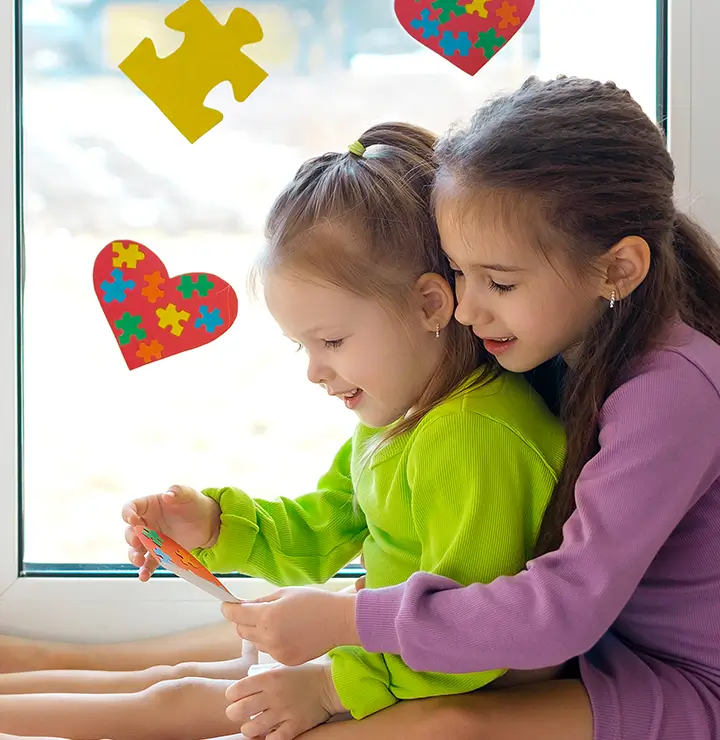Autism Spectrum Disorder (ASD)
Autism spectrum disorder (ASD) can often be identified in the early years of a child's life. An average of 1 in 88 children has some form of the condition, and it is more frequently found in boys.
There are several types of ASD:
- Autism
- Asperger's disorder
- Pervasive developmental disorder not otherwise specified
- Childhood disintegrative disorder (also called disintegrative psychosis)
Causes and symptoms
Scientists do not know the cause of autism.
Research suggests that ASD is genetic. Research has found a variety of abnormalities in the brain structure and chemicals in the brain, but the findings have not been consistent. One theory is the possibility that autistic disorder is a behavioral syndrome. However, parenting behaviors are neither the cause nor a contributing factor to ASD.
Though each child may experience symptoms differently, common symptoms of ASD include:
- Poor social interaction with others
A child with ASD may show a lack of interest in physical contact, or reject it entirely. Autistic infants and children are not comforted by physical contact. Children with ASD may avoid eye contact with others and fail to develop friends or interact with other children.
- Poor communication skills
Children with ASD may have delayed language development. Once language is developed, autistic children may not use it to communicate with others. A child with ASD may also repeat words or phrases (called echolalia). - Has repetitive behaviors
Autistic children may have repetitive motor movements, be preoccupied with lights or moving objects, dislike noise and require a strict routine.
Some children with ASD have:
- Normal development of speech, self-help skills, thinking skills (cognitive development) and curiosity about their environment
- Difficulty with social interactions such as making friends, sharing ideas, sharing pleasures or accomplishments, facial expressions (smiles) or eye contact with others
- Repetitive and stereotyped patterns of behavior or play such as strange routines or rituals (hand or finger flapping, collecting strange objects such as lint)
- Capable of originality and creativity focused on isolated areas of interest
Always consult your doctor for an evaluation and diagnosis of ASD.
Diagnosis and treatment
ASD is usually identified by the age of three years. The diagnosis is usually made by a child psychiatrist or other mental health professional following a comprehensive medical and psychiatric evaluation.
Early and accurate diagnosis is important because ASD can put children at risk for developing other mental disorders, such as depression, ADHD, obsessive compulsive disorder and schizophrenia.
Treatment of ASD is individual to each child, based on the symptoms and level of severity.
Treatment may include:
- Speech therapy
- Occupational therapy
- Social skills training
- Behavioral therapy
Medication may be helpful in treating some symptoms of ASD in some children. Child and adolescent mental health professionals help families identify and participate in treatment and educational programs based on an individual child's treatment and educational needs.





